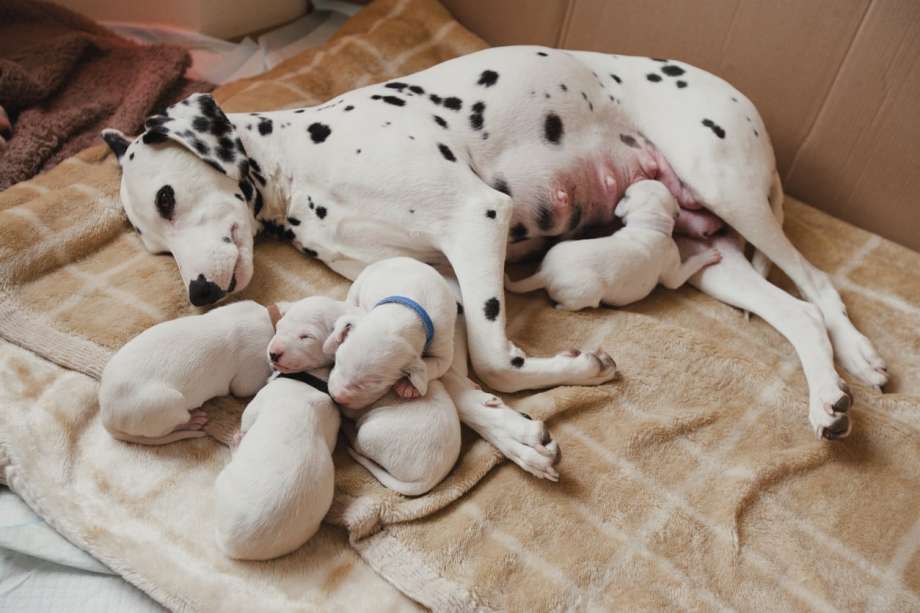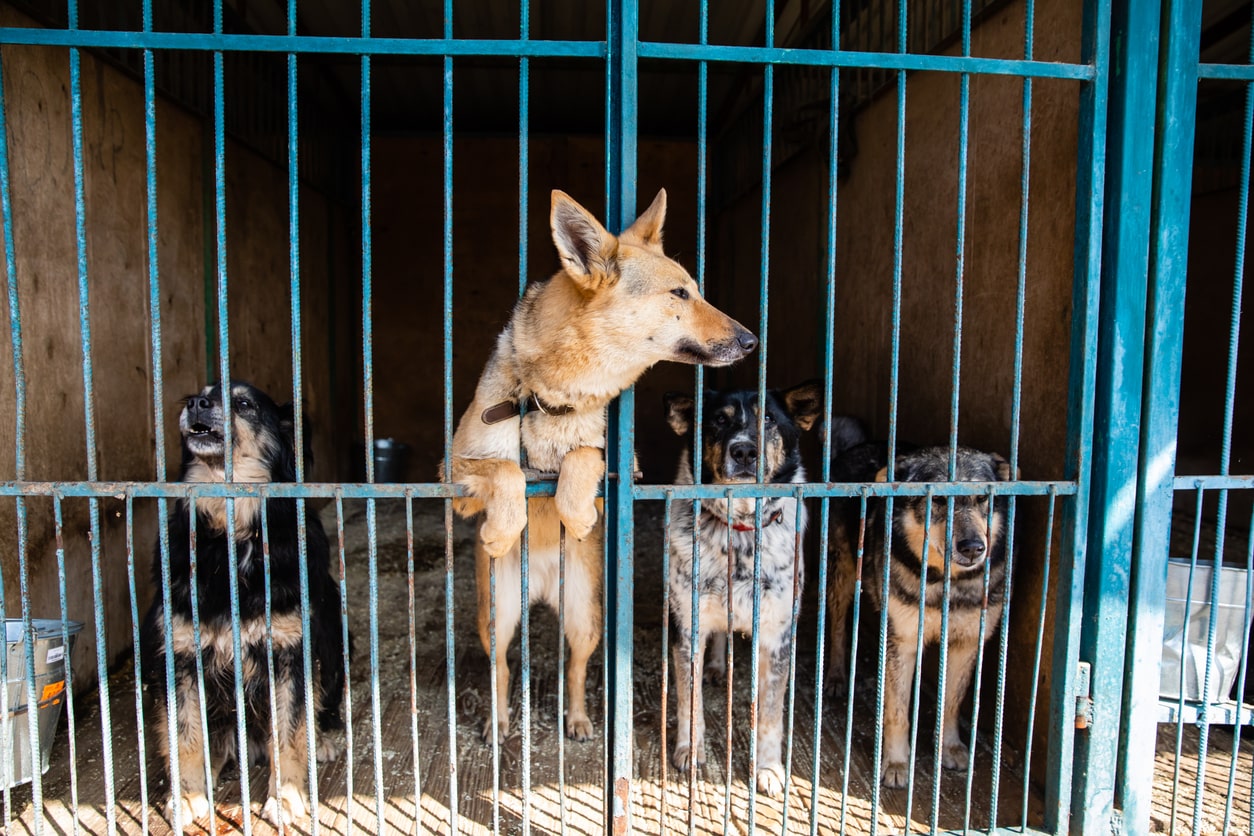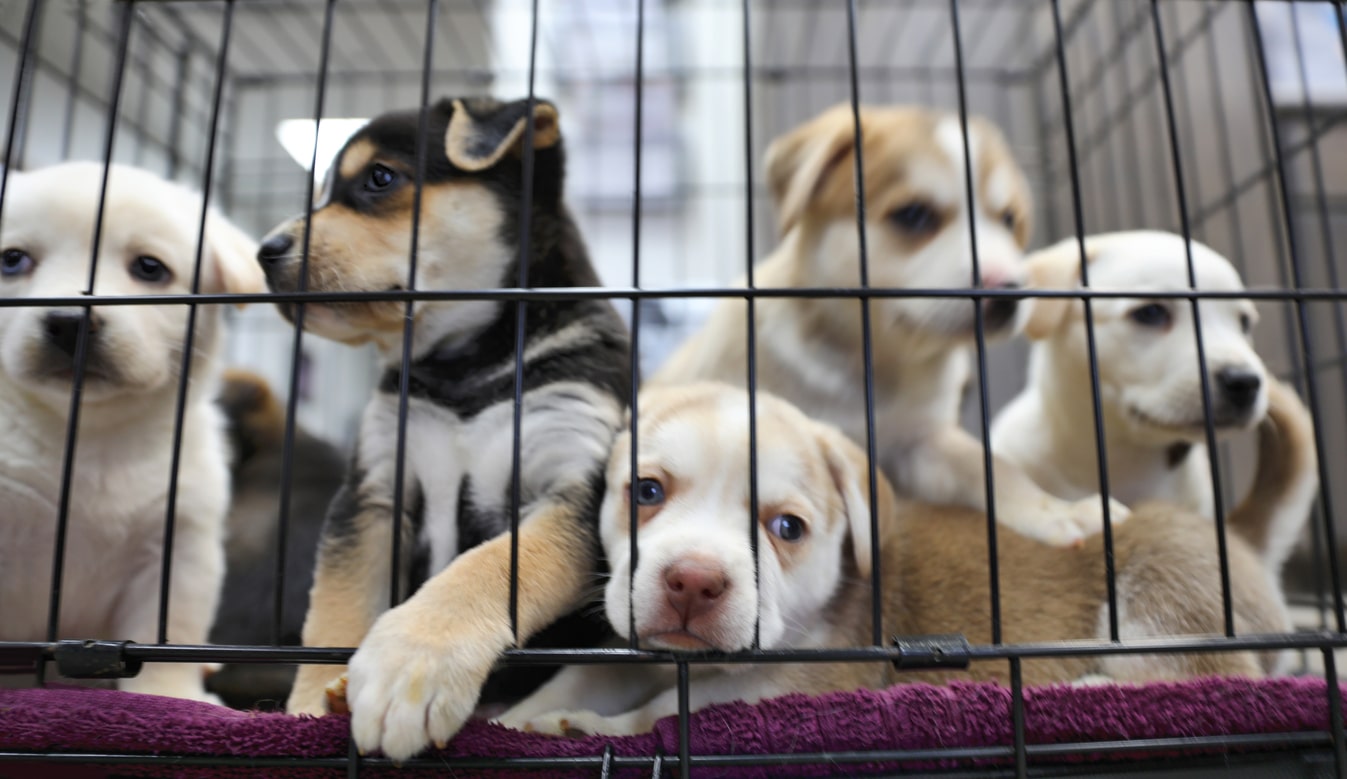Backyard Breeder Warning Signs: What to Know Before You Get a Dog

There’s nothing like bringing home a new puppy. But when it comes to buying a dog (or adopting a dog) the options can seem overwhelming.
And getting your dog from the wrong source can end in tears for both you and your pet.
What are the different options for choosing a family dog? And how can prospective dog owners avoid the scams and pitfalls that abound? We have you covered.
Best Places to Find Your New Dog Best Friend
You’ve probably heard the saying, “Adopt, don’t shop.” This saying goes back to a time when the main options for a prospective pet owner were adopting from a shelter or buying from a pet store or breeder.
There are more options to get a dog now, and some are much better than others. There are also quite a few pet adoption scams. So it pays to be careful.
Shelters and Rescue Groups
When you adopt from a shelter or rescue, you’re literally saving a life. Adoption fees may include vaccinations, microchipping, spay or neutering and behavioral training if needed. And if you’re looking for a specific breed of dog, like a poodle or a dachshund, a breed-specific rescue can be a good option.
Pet Stores
In the past, many pet stores sourced their animals from puppy mills and backyard breeders. We’ll talk more about those in a bit. This practice led to sickly animals bred in cruel and often unhygienic circumstances.
Today, many pet stores partner with rescues for adoption days or have rescue animals, rather than commercially bred animals, in their stores. This is the law in California, as a matter of fact (Bershadker, 2017). So check out the pet stores in your area. You may be pleasantly surprised.
Responsible Breeders
Responsible breeders follow strict codes about the humane treatment of their breeding animals. They also keep meticulous health records for all of their animals. And, if a customer cannot keep their pet, many breeders will ask that it be returned.
The American Kennel Club (AKC) has a list of responsible breeders who meet their stringent standards. ResponsiblePetBreeders.com is another place to find a humane, responsible breeder.
Where NOT to Source Your Dog
Backyard breeders and puppy mills are two places you should never consider when looking for a pet.
What’s the Difference Between a Breeder and a Backyard Breeder?
Responsible breeders don’t breed dogs for profit. Many don’t make a profit at all on a litter of puppies, even though the price of a purebred dog may seem high. Rather, they breed puppies for the love of the breed.
A responsible breeder will:
- Choose the parents of a litter carefully
- Maintain meticulous medical records
- Keep records of parentage and bloodline
- Follow strict standards of hygiene and care
- Breed a dog only a few times in her life
- Have high standards for potential buyers
- Provide a health guarantee for every dog
- Take a dog back if the customer cannot keep it

Backyard breeders, on the other hand, are small-scale commercial breeders who do it for the money. Many breed their animals early and often, under cruel conditions, then discard them when they can no longer produce.
Someone advertising puppies, even purebred dog breeds, on sales websites like Craigslist, is almost certainly a backyard breeder.
What are Puppy Mills?
Puppy mills are large commercial breeding operations that maximize profit by breeding animals quickly and often, under poor living conditions. The Humane Society defines a puppy mill as:
"Emphasis on quantity over quality, indiscriminate breeding, continuous confinement, lack of human contact and environmental enrichment, poor husbandry and minimal to no veterinary care." (HSVMA, 2013).
Some of the conditions commercially bred dogs endure include:
- Continuous confinement in small, wire-floored cages
- No weather protection
- No windows
- Contaminated water
- Spoiled food or not enough food
- Serious untreated medical and dental conditions
- Being kept in close quarters with deceased dogs
In addition, puppies are typically weaned too early, so that their mothers can be bred again and again.
As a result, puppies from puppy mills lack socialization and may have significant health problems, both from genetics and from a poor environment.
Risks of Backyard Breeders and Puppy Mills
In addition to subjecting their animals to cruel living conditions and substandard (if any) health care, backyard breeders and puppy mills often produce animals with significant health issues and behavioral flaws that can make them poor family pets.

A recent study found that dogs born in commercial breeding establishments were more prone to emotional and behavioral problems, including fearfulness, aggression, destructiveness and separation anxiety (McMillan, 2017). They also exhibit more phobias and house-soiling issues (Center for Shelter Dogs, 2012).
The puppy mill puppies in the study were raised in confined quarters without adequate exposure to humans and without adequate socialization with other dogs. The result was that these puppies were more prone to aggression toward other dogs. The puppy mill puppies also displayed fear when confronted with strangers, children or other animals.
Commercially bred dogs also fare poorly physically. Some common problems of commercially bred dogs include:
- Advanced dental disease
- Untreated injuries
- Starvation
These problems had nothing to do with the families who purchased them. Rather, the dogs’ early life experiences shaped them, just as people’s childhood experiences shaped us. Cruel or negligent treatment in puppyhood scars a dog for life.
Beware of Pet Scams
During the pandemic, the demand for pets skyrocketed. For the first time, in many places, there were more loving homes than pets who needed a new home.
Unfortunately, pet scams sprang up to cheat people who wanted a cat or dog. The popularity of online pet ads and businesses has only made these scams more popular!
Some scammers pull a bait and switch. The customer pays in advance, then goes to retrieve the pet, and is told that the one they chose is unavailable. Then they are offered a totally different breed or animal. Often, these animals are stolen.
Other times, there may be no pet at all. A scammer may simply take the customer’s money and disappear.
How to Identify a Pet Scam
These scam-spotting tips come from the Animal Legal Defense Fund. Beware of these red flags.
-
The Pet Seller Doesn’t Ask Questions
Scammers get around rules on platforms like Craigslist by framing their pet sale as an “adoption.” But someone really looking to rehome their own pet will want to make sure it’s going to be going to a good home.
Scammers just want to take the money and run.
-
There’s Limited Information About the Pet
A reputable dog breeder will have health and family records for their dogs and be willing to share them with you. Likewise, someone rehoming their own pet should be able to tell you everything about that pet.
-
They Post Suspicious Photos or Generic Information
Do a reverse-image search (here’s how) to make sure the photo hasn’t been stolen from a shelter or rescue’s website or taken from a stock photo source.
Also, beware of vague information and descriptions of the animal that don’t refer to their height, weight, age or special markings or characteristics. The more vague a pet is described, the more likely that it’s a scam listing.
-
They Demand Money Up Front
Some scammers ask for a deposit or even all of the money upfront. Don’t fall for it. Also beware if they ask you to pay via a wire transfer, gift cards, cash, or a third-party app like Venmo. These payment methods make it very hard to get your money back if you’ve been scammed. No reputable dealer will ask you to pay for your pet up front until you are taking the dog home.
-
Seller Won’t Allow You to See Where They Keep the Dogs
You should be able to visit the puppy where it lives, whether that’s at a breeder’s facility or the seller’s home. The seller should also allow you to inspect the facility. You should also be able to interact with the dog before deciding if you want to take it home.
If they insist you meet in a public place or want to have a third party deliver the dog to you, this is a huge red flag!
The Best Dogs for Families
The best dog for your family is the one that fits in with your bunch in terms of size, personality and activity level.
People who live in a house with a large, fenced yard, may enjoy a large, active breed like a Doberman, German Shepherd or Collie.
The Golden Retriever and Labrador Retriever are both renowned for their easygoing, family-friendly nature. A beagle or cocker spaniel can make a sweet family pet, as well. Goldendoodles, Bernedoodles and Labradoodles also make great family pets.
People who live in a flat would do better with an “apartment-sized” dog like a Yorkie, Bichon Frise, Maltese, Chihuahua, Boston Terrier or French Bulldog.
Resources to Find a Dog or Puppy for Your Family
If you’re ready to get a dog, there are plenty of free online resources and shelters to start your search! One trusted website to find dogs and other animals is Petfinder.com. On Petfinder, you can connect with local shelters and rescues and ask about the pets they have available.
If you’re looking for purebred dogs, the American Kennel Club can point you toward a reputable, responsible breeder near you.
And if you’re more of a cat person, check out: Where and How to Adopt or Buy Cats (and Where NOT To)

